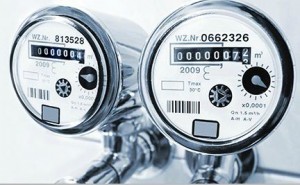Share This
Related Posts
Tags
Utility Legislation
By Leah Etling on May 31, 2013 in News
 SACRAMENTO, Calif. – Pending legislation that could bolster California’s water conservation efforts by mandating the metering of water in new construction throughout the state is moving forward. This week, the California State Senate passed an amended version of SB750, which would require individual unit water metering at all newly developed multiunit residential structures or mixed-use residential/commercial projects.
SACRAMENTO, Calif. – Pending legislation that could bolster California’s water conservation efforts by mandating the metering of water in new construction throughout the state is moving forward. This week, the California State Senate passed an amended version of SB750, which would require individual unit water metering at all newly developed multiunit residential structures or mixed-use residential/commercial projects.
SB750, introduced by Senator Lois Wolk (D-Davis), is being tracked by the Utility Conservation Coalition (UCC) and Utility Management Conservation Association (UCMA), two utility management advocacy associations. Martin Levkus, Yardi Systems’ Vice President and General Manager of YES Energy Management, is a director at the UCMA, which has provided technical expertise on submetering and utility billing to the bill’s authors to inform the legislation’s development process.
The bill would require individual unit water meters or submeters in newly constructed multifamily or mixed-use residential and commercial properties that are under four stories. Existing properties would not be required to install submeters. Though a planned enforcement date of January 1, 2014, has been proposed, the legislation has yet to be approved and signed into law. Depending on when the bill is approved, the enforcement date could be delayed.
Based largely on the advocacy of the UCC and UMCA, a recent amendment to the bill, considered crucial to many in the multifamily industry, removed a prohibition on Ratio Utility Billing Systems (RUBS) from the legislation. RUBS allow property owners to calculate the portion of water/sewer charges that are passed on to residents based on occupancy, the square footage of their apartment, or other associated factors.
Under the current version of the bill, existing RUBS properties would be grandfathered, and landlords would be able to pass through a monthly administrative fee of up to $4.00. If the tenant’s water bill is less than $10, in which case the pass-through administrative fee would be capped at 40% of the tenant’s water service bill. This fee cap would be subject to inflation increases beginning in 2017.
The implementation of submeters is expected to have a positive impact on conservation of valuable water resources. Submetering is considered an “effective but little-used tool to support water conservation,” according to a white paper on submetering benefits from the Environmental Protection Agency.
SB 750 now heads to the Assembly for consideration. Some issues of concern for the utility billing associations and apartment associations remain, including addressing the meter supply shortage, late fee caps, and the rules applicable to landlords who submeter. Further changes may be made before the bill goes to Gov. Jerry Brown.
To read the current text of SB750, visit http://www.legislature.ca.gov/cgi-bin/port-postquery?bill_number=sb_750&sess=CUR&house=B&author=wolk
